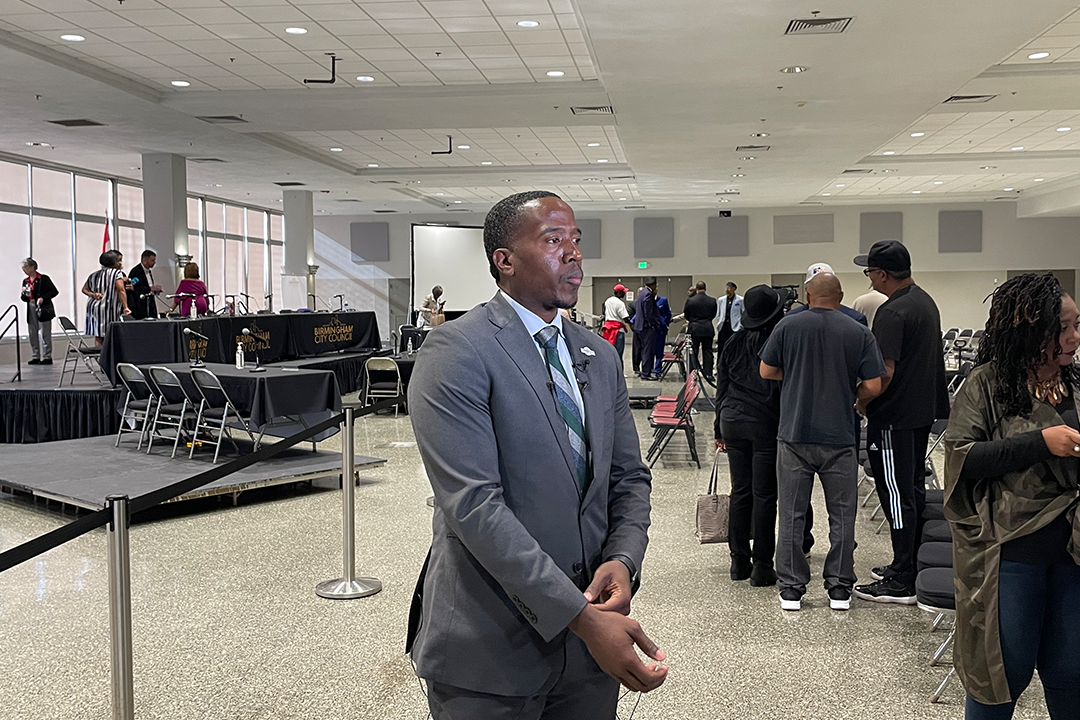Last month, Birmingham City Councilman Clinton Woods told the media that he planned to bring an investigation into the election of the council president before the council in the coming weeks.
Nevertheless, no such investigation has appeared on the council agenda in the four council meetings that have taken place since.
During its regular council meeting on October 24, the nine-member body elected Councilman Darrell O’Quinn as president with only four votes.
Before Councilwoman Carol Clarke nominated O’Quinn, incumbent Wardine Alexander and Woods were tied in the running for council president, each with four votes, Clarke abstaining.
Since O’Quinn was one of three candidates and received votes from Hunter Williams, Valerie Abbott, Clarke and himself, he was named the new president. The council then elected Alexander as pro tem to replace Councilwoman Crystal Smitherman.
Officials invalidated O’Quinn’s first election later that week, claiming there was a misunderstanding of the Mayor-Council Act, which says that, to pass, any measure must receive a vote from the majority of those present and voting.
The council was forced to meet again on Friday, October 27. There, Woods nominated Alexander. Clarke nominated O’Quinn before Councilman J.T. Moore proposed closing nominations.
O’Quinn received votes from Councilwoman Valerie Abbott, Williams, Moore, Clarke and himself. Alexander received votes from Woods, Councilwoman LaTonya Tate and herself.
Smitherman, after a long pause, chose to abstain.
Before O’Quinn’s second election, Woods pressed City Clerk Lee Frazier about how the issue was initially brought to his attention and if any members of the council consulted with the city legal department or the clerk’s office about whether or not it was possible to elect a president without a majority of those present and voting.
Frazier claimed that electing a president without a majority of those present and voting “was not a topic of discussion” between him and other council members before O’Quinn’s initial election.
After posing questions, Woods proposed a motion to introduce a formal investigation into the initial election to the meeting’s agenda. According to procedure, unanimous consent is required to introduce an item not already on the agenda on the day of the meeting.
Nevertheless, Clarke opposed the motion, and it, therefore, failed to obtain unanimous consent.
When speaking to the press, Woods said he intended to get the investigation on the agenda of one of the council’s meetings in the coming weeks. This would not require unanimous consent because he would add it to the agenda through regular procedures.
When asked by a member of the press, Woods declined to go into specifics about the rumors mentioned during the meeting.
1819 News made multiple attempts to reach out to Woods to ask whether he still intended to introduce the investigation. He did not respond.
To connect with the author of this story or to comment, email will.blakely@1819news.com or find him on Twitter and Facebook.
Don’t miss out! Subscribe to our newsletter and get our top stories every weekday morning.










